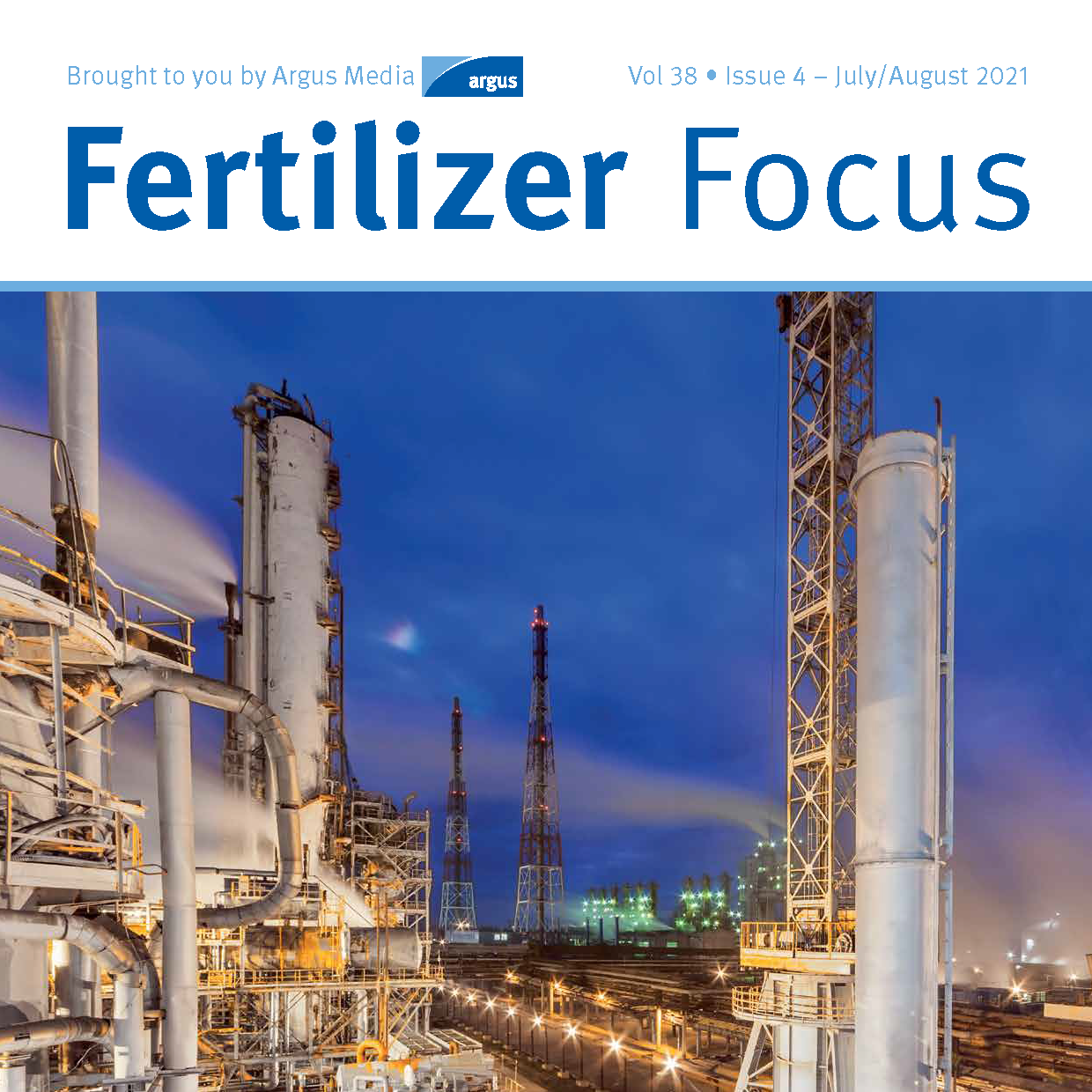New Nitrogen-Mixing Microbial Collaboration
The Mosaic Company and BioConsortia have entered into a collaboration to develop and launch nitrogen-fixing microbial products for corn, wheat and other major non-legume row crops. Fertilizer Focus speaks with BioConsortia’s CEO, Marcus Meadows-Smith about the deal and the benefits it will have for the industry.
FERTILIZER FOCUS (FF): Could you tell me about how Mosaic’s and BioConsortia’s deal to develop nitrogen-fixing microbial products came about?
MARCUS MEADOWS-SMITH (MMS): Mosaic are committed to innovation in the fertilizer space and bring better plant nutrition solutions to growers. The deal we have with them concerns nitrogen. About 50% of conventional nitrogen fertilizer is lost to the environment - to the atmosphere, leaching into ground water or run off into streams and waterways. Often having unintended negative consequences. We are looking to significantly reduce this loss and reduce the unintended consequences. Through a process called ‘biological nitrogen fixation’, beneficial plant-associated microbes are able to naturally produce nitrogen in forms that are desired by plants, thereby reducing the reliance on synthetic inputs of nitrogen.
When Mosaic approached us, they thought it would be the perfect relationship given our commitment to soil health and the pipeline of nitrogen fixing microbial products we were developing. Mosaic is a major supplier of potassium and phosphorus fertilizers, but had a gap in their portfolio for nitrogen products. Therefore, this was an ideal partnership, but there were still many months of negotiations before we came to an agreement.
(FF): What crops will they be applied to?
(MMS): The agreement we have is for row crops, so corn, wheat, cotton and sugar cane in the Americas. We are starting trials across the US, Canada, Brazil and Argentina.
(FF): What benefits will these products impart onto Mosaic’s fertilizers?
(MMS): As mentioned, Mosaic had a gap in their portfolio with nitrogen. And when you talk about plant nutrition, you really need to be involved with nitrogen, because after water, it is the largest contributor to plant growth and crop yields.
(FF): What benefits will these fertilizers have for growers?
(MMS): Growers are going to be using this process in three ways. Firstly, to use microbes to drive up their crop yields while using the same amount of conventional fertilizers. Secondly, in areas where concerns about the environment are prevalent – here growers will be able to reduce the amount of conventional fertilizer they apply without seeing any reduction in their crop yields. And then also in areas where there are regulations in place that limit the volume of nitrogen being applied.
Some growers will embrace the process and realise they can achieve higher crop yields with lower fertilizer applications. Thereby, increasing farm revenues while decreasing the cost of inputs. Others will probably want to see the benefit first before employing the practice of reducing their conventional fertilizer inputs. We want it to be easy for growers to apply alongside other products, and see the benefits first hand on their own farm.
(FF): Are you able to develop microbial products for other fertilizer producers, as well?
(MMS): Within the Americas we have an exclusive deal on row crops with Mosaic. But for other crops such as flowers, fruit and vegetables we will be looking for partners in the Americas. But we are also looking for partners for all crops, outside the Americas. While we are focussing on the nitrogen fixing products, we can also bring other nutrient products that are beneficial to both the environment and yields – microbial products that increase the availability of phosphorus and potassium to the plant. Getting nitrogen fixation on non-legume crops is the Holy Grail when we are able to gene edit microbes to unleash their natural potential.
(FF): How do you envision BioConsortia’s future growth and development? More deals like the one with Mosaic?
(MMS): We have more deals in the pipeline for our biopesticides and biostimulant products, with a number of potential partners field testing our products this growing season. We will then be looking to sign sales and marketing agreements to promote the products to the market. We want to remain an R&D company, which means we would not be going into competition with our partners.
Our deal with Mosaic is a development and sales agreement, but there are some companies in the industry that prefer a fully-developed, finished product that has already been tried and tested through extensive field trials which they can simply add to their portfolio. So we will continue to develop and register more products involved with nitrogen fixing, NPKs, biostimulants, and biopesticides.
Biopesticides require an EPA (United States Environmental Protection Agency) registration that takes about two years to obtain, whereas our nitrogen and fertilizer products have a rapid registration pathway at the state level. Therefore, you can expect to see our products on the market relatively soon.
